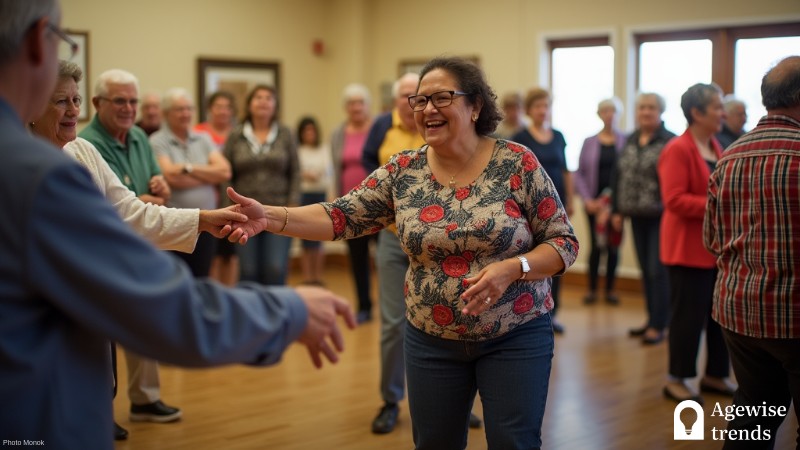Support and community are essential, especially for seniors and caregivers facing the challenges of aging. Seniors often deal with physical limitations, mental health issues, and isolation, while caregivers balance their responsibilities with personal lives. Senior support groups offer a vital space for older adults to connect, share experiences, and seek advice.
In addition to practical assistance, these groups foster a sense of community. As the senior population grows, the importance of supportive communities where seniors can share experiences becomes clearer.
On the other hand, caregivers also require essential support to avoid burnout. Employers can play a key role in supporting caregivers by offering flexibility, resources, and time to balance their caregiving responsibilities with their work, improving their well-being and ability to provide quality care.
Key Takeaways
Support communities play a vital role in helping seniors and caregivers cope with the challenges of aging, fostering connection, sharing experiences, and providing essential support.
- Senior support groups offer a space for older adults to connect, share experiences, and seek advice, reducing feelings of isolation and promoting a sense of community.
- Employers can play a key role in supporting caregivers by offering flexibility, resources, and time to balance their caregiving responsibilities with work, improving their well-being and ability to provide quality care.
- Supportive communities, including both in-person and online options, are crucial for fostering long-term well-being among seniors and caregivers, providing access to services and support needed to thrive.
A lifeline for connection
Support groups for seniors play a crucial role in reducing the sense of isolation many older individuals experience. These groups help seniors connect with others who understand the unique challenges of aging, whether they are managing chronic health conditions or simply seeking companionship.
At the same time, caregivers also benefit from programs and resources designed specifically for them. Having opportunities to discuss the challenges of providing care, balancing responsibilities, and coping with emotional strain and burnout allows caregivers to relieve stress and regain a sense of stability.
Caregiver burnout is a big deal
Nigel Guyot, Center Director at InnovAge’s Loveland, Colorado center
When employers offer support—whether through flexibility, resources, or understanding—caregivers receive the emotional and practical assistance they need to provide better care for their loved ones.
Both seniors and caregivers gain valuable insights from shared experiences. The advice exchanged in these support systems helps ease burdens and fosters a more compassionate environment. While seniors find connection and reassurance, caregivers can recharge, maintain balance, and receive support from those who understand their struggles.
Flexibility and accessibility
The availability of both in-person and online support options benefits seniors through dedicated senior support groups. These groups offer in-person spaces where older adults can socialize, share experiences, and seek guidance. Seniors can connect with others facing similar challenges and access resources to navigate aging-related issues.
With digital platforms, online support groups for seniors have become valuable, especially for those with mobility challenges. Virtual meetings allow seniors to engage without leaving home, making it easier to receive support. This flexibility is crucial for those with limited access to transportation or health concerns.
Caregivers, often juggling work and caregiving duties, also need support to manage their well-being. Workplaces play a key role by providing caregivers with essential resources and flexibility to balance their professional and caregiving responsibilities. As previously stated, when caregivers are supported, they can better care for their loved ones, benefiting the seniors in their care.
Fostering long-term well-being
Building a supportive environment for elders, including caregivers, is critical to promoting long-term well-being. These communities go beyond offering emotional comfort; they create long-term networks of care and understanding. By providing both in-person and online options, they ensure consistent access to the services and support needed to thrive.
Caregivers, particularly as workers, benefit from a strong support network that helps them prevent burnout and maintain their ability to provide care. As more employers recognize the importance of supporting both seniors and the caregivers within their workforce, the focus shifts toward creating work environments that promote growth, resilience, and overall well-being.
A comprehensive, inclusive approach to caring and aging recognizes the critical role that caregivers play and ensures they have access to the resources, emotional support, and camaraderie needed to preserve their own health and well-being. We can help elders and their caregivers enjoy fuller, more connected lives by cultivating these supporting communities in both personal and professional settings.















